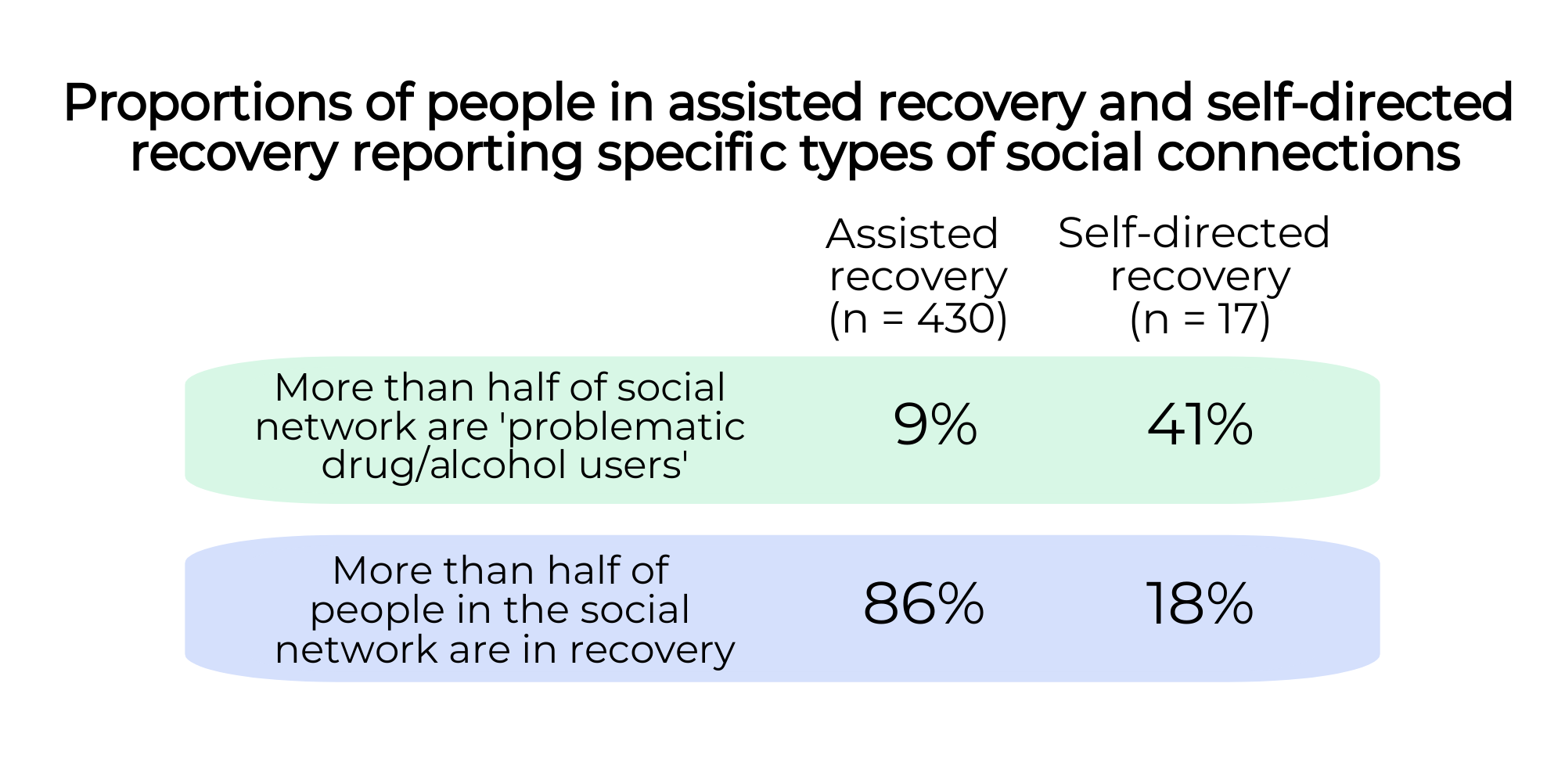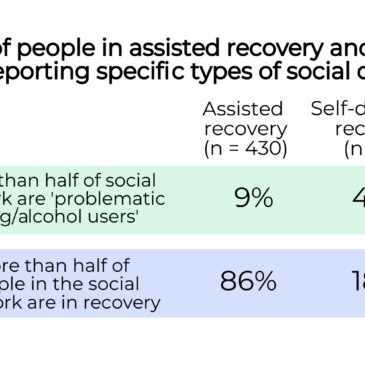People who report greater social support respond better to treatment for heavy drinking. However, having lots of friends and family who use substances can negatively impact long-term recovery goals. This week, as part of our Special Series on Self-Directed Recovery, STASH reviews a study by Elizabeth Elms and colleagues that explored how peer substance use habits relate to successful self-directed recovery.
What is the research question?
Are peer substance use habits related to a person’s own path to recovery?
What did the researchers do?
The researchers conducted an analysis of cross sectional data collected in the 2015 Australian Life in Recovery Survey. Participants who considered themselves already recovered or in recovery from substance misuse were eligible. The researchers assessed the responses of 518 participants to examine substance misuse histories, wellness, and whether recovery was self-directed or assisted in any way (i.e., assisted by treatment or mutual aid groups, like AA or NA). The participants also described their social networks, both in the current moment and before they recovered. The researchers tested whether wellness or social factors differentiated the recovery pathways groups.
What did they find?
Just over 5% of participants (n = 27) had recovered without treatment or mutual aid (i.e., the self-directed recovery group). Their self-reported wellness was high and equal to that of participants in the assisted recovery group. However, there were some notable differences. While they were in active addiction, those who eventually took the self-directed recovery pathway had stronger and more diverse social connections. While they were in recovery, people in the self-directed recovery group were more likely to have active substance users in their social networks and less likely to have people in recovery in their social networks (see Figure).

Figure. Relative risk of reporting a specific type of social connection among people in assisted recovery and in self-directed recovery. All numbers represent significant risk ratios. Click image to enlarge.
Why do these findings matter?
This study has a hopeful message for people who want to try to recover from substance misuse on their own, given that participants reported high wellness regardless of their pathway to recovery. Connections play an important role in substance use behaviors. People who are trying to recover on their own might benefit by strengthening their social connections and drawing on support from friends, family, people in recovery, and others. Having active substance users in one’s social networks is an established risk factor for substance use, but, in this study, it did not appear to harm the participants who recovered on their own–potentially because they had particularly diverse social networks. Individuals looking for ways to diversify their connections might benefit from picking up new social activities or hobbies, such as through meetup groups or by signing up for a local pottery class.
Every study has limitations. What were the limitations in this study?
The number of participants in the self-directed recovery group was small and in recovery for less time than the assisted recovery group (i.e., less than one year compared to greater than 3 years in recovery).
For more information:
Access free addiction help resources on the BASIS addiction resources page or call the national addiction helpline at 1-800-662-HELP (4357) for information on self-help resources.
— Pat Williams
What do you think? Please use the comment link below to provide feedback on this article





Marie McGregor, MS AAP November 27, 2018
Johann Hari has been saying that connection is the opposite of addiction for quite some time. Check out the video “Addiction” (You can pull it up on YouTube by searching “rat park”)
Pat Williams November 28, 2018
The Rat Park video you’re referring to is actually the video that got me interested in the social psychology of addiction! I recommend it to everyone I can. As you point out, it’s definitely not a new idea in psychology (Rat Park experiments occurred over two decades ago), and I think it’s important to remind people that substance-based and behavioral addictions belong to more than just the individual.
Thanks, Marie!